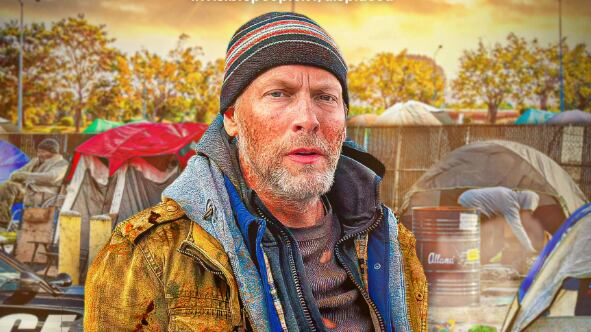The fourth annual PDX Recovery Film Festival returns to Revolution Hall on Sunday, Sept. 29. Bridges to Change, a local nonprofit supporting addiction recovery for 20 years, started the festival virtually in 2021 as a fundraiser. An afternoon resource fair will precede the films, connecting attendees to addiction recovery experts—and fabulous prizes—before screening movies in multiple genres.
PRFF showcases both how much progress has been made in mental health and social struggles around the world, and how much further there is to go to normalize much-needed conversations and advocate for underserved segments of the public. With a dozen films set to screen, here are six movies at the festival that stand out for their diverse perspectives and subject matter, blending fact and fiction to shed light on the world’s darkness and offering ways to bring more light to those who need it most.
I’m Fine (2023, dir. Weronika Trzpis)
Trzpis’ autobiographical animated film started as a graduation project for the University of Central Lancashire. The Polish native uses visual metaphor to share their mental health journey. Jagged red lines run up and down Trzpis’ limbs, though these marks appear more in their reflection rather than in real life. A shiny golden cat keeps Trzpis company with bedtime snuggles, and during playtime with a stick toy. I’m Fine also depicts sessions with Trzpis’ therapist, a kindly bespectacled woman who listens well and always has a cup of tea to share.
A Ray of Hope (2024, dir. Joshua Emmitt Cornelius)
Cornelius, a National Guard veteran, was also a Baltimore police detective. He turned to documentary filmmaking after realizing he could do more good for people in need through this creative medium. Working with the Florida-based nonprofit Selah Freedom, Cornelius met A Ray of Hope’s subject: Mia, a sex trafficking survivor ready to tell her story and advocate for herself and fellow survivors. Mia and Cornelius have taken this film around the country, from Florida to Illinois and now to Oregon, to educate audiences on how close to home human trafficking has been for so many people.
Bipolar Moment (2024, dir. Madoc Riseley)
Riseley, a Pacific Northwest College of Art alumnus, uses Claymation to tell the story of his own mental health struggles. After he has a breakdown, his father takes him to a psychiatric ward. As with many psychiatric patients, Riseley’s first treatments aren’t necessarily the right ones. It takes much trial and error to find his proper balance of therapy, medication and exercise—and art, which has allowed Riseley to channel his manic energy and rise up from depression, depending on whether he experiences manic or depressive periods.
Displaced (2024, dir. Luciana Faulhaber)
Ray (Keith Nussbaum), a houseless veteran, lives under threat of new laws criminalizing homelessness in Missouri. In this fictional docudrama, Will (Michael Frimpong), a journalist and community activist, seeks to help Ray after city workers sweep his encampment on a frigid winter day. Displaced highlights many forms of discrimination against unhoused people (a restaurant manager tries to refuse service to Ray, while passersby speculate that he’s begging for drug money) and helps audiences connect with the real people most affected by the Supreme Court’s City of Grants Pass v. Johnson ruling.
Appa (2023, dir. Keli’i Grace)
Grace made his career depicting the tribulations of Hawaii’s ordinary people. Appa is a drama based on a Korean American family’s real experiences with poverty and addiction. Set on O’ahu’s North Shore, Appa follows Aiden Phengsy’s true story. Phengsy not only wrote the script but also stars as Kenny, grandson to matriarch Liane (Lee Heintz). Liane balances caring for her son Tommy (Waimea Danny) amid his ongoing substance abuse and the family tomato farm’s demanding needs.
The Pier Poet (2024, dir. Lesly Mendez, Ger Skinder)
After some years navigating mental health challenges, poet Henry Bernard found a unique way to creatively express himself and help others heal. This short documentary highlights Bernard’s freeform poetry, in which he spends his days improvising on his typewriter, on multicolored paper, based on topic requests that passing strangers may give him. In addition to the titular oceanside location, Bernard also regularly presents his poetry on campus at California State University, Long Beach, where he never fails to find amazement in the passions of the student body—which includes him, as he completes his master’s degree in counseling psychology.
SEE IT: PDX Recovery Film Festival at Revolution Hall, 1300 SE Stark St., 971-808-5094, revolutionhall.com. Doors open at 2 pm, screenings begin at 3 pm Sunday, Sept. 29. $7.50–$15. All ages.

